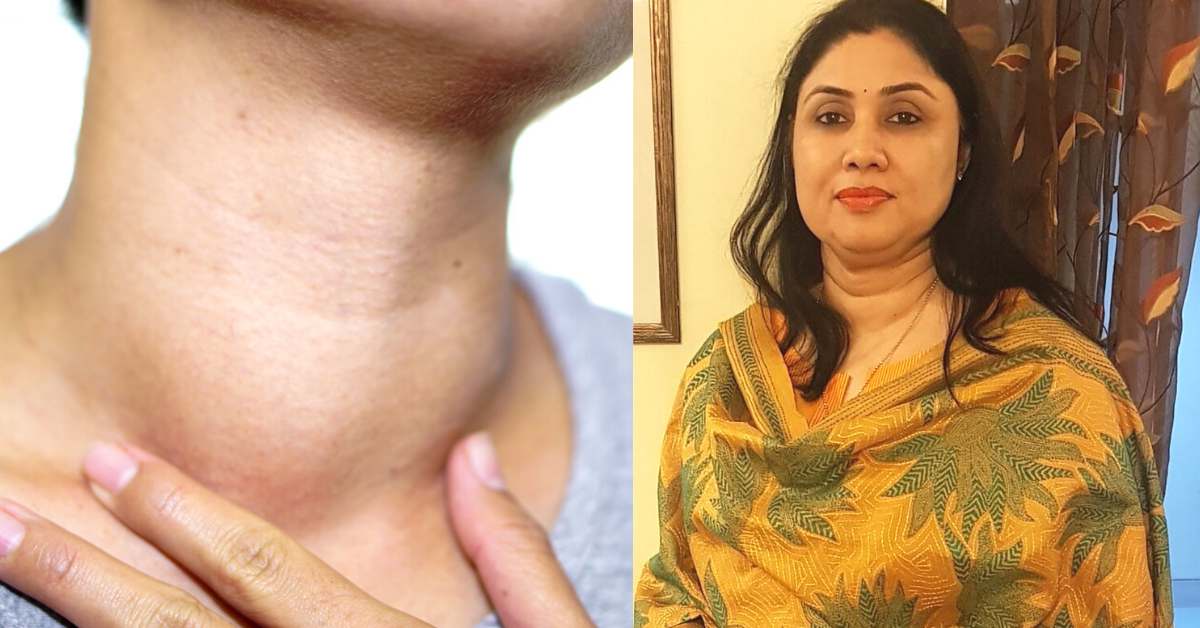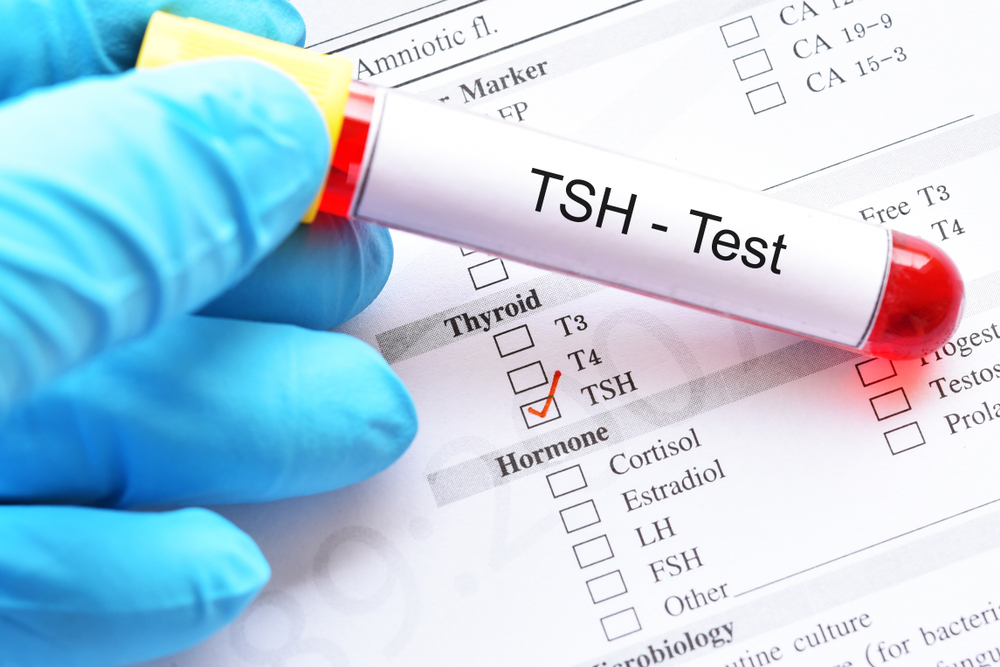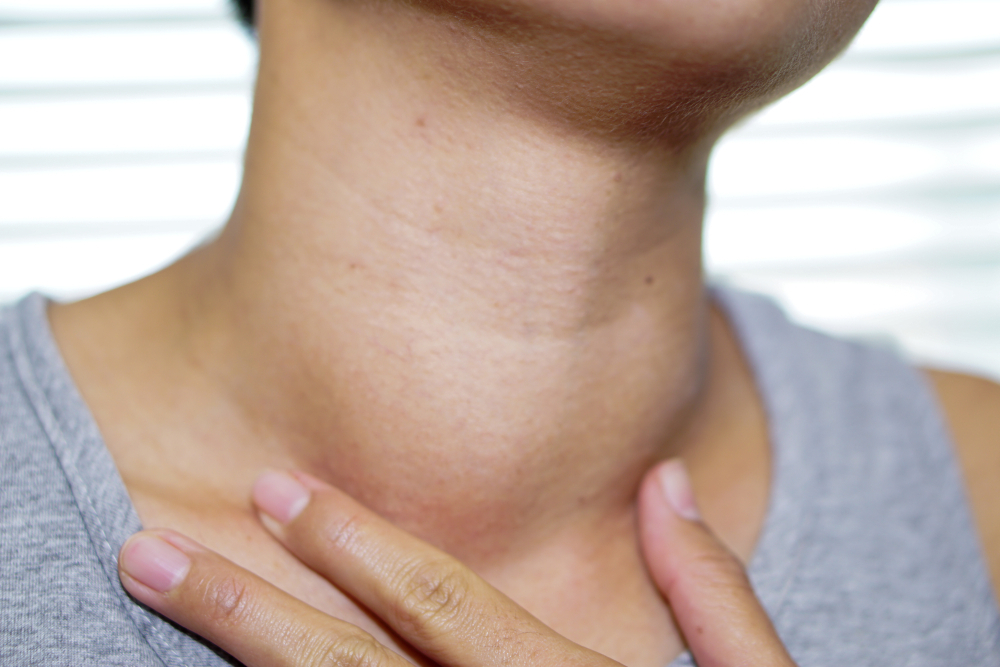Is Thyroid Making Me Gain Weight? 9 Myths Debunked by a Doctor
Dr Mugdha Tapdiya helps us debunk some of the myths that surround thyroid disease.

With The Positive Collective, The Better India’s COVID-19 coverage is available to regional language publications for free. Write to [email protected] for more details.
‘Despite the thyroid gland’s importance, and the prevalence of thyroid disease—according to the Indian Journal of Endocrinology and Metabolism, about 42 million people in India suffer from thyroid diseases—the area is ripe with myths and misinformation.
To help us get the facts straight, The Better India spoke to Dr Mugdha Tapdiya, Internal Medicine, Fortis, New Delhi.
1. Only women are susceptible to thyroid disorders
“No, this is a very common myth. While studies show that women have a higher predilection to the disease, the ratio between men and women who are diagnosed with thyroid is 30:70. It affects both genders,” mentions Dr Tapdiya.
It does not matter whether you are a man or a woman. As per your physicians’ guidance, do get your TSH levels checked periodically to ensure that you can start treating the disease as early as it is found.
2. You will know if you have hypothyroidism (underactive thyroid)

While there are no specific symptoms, it is best to get assessed by a medical practitioner if you feel the need, says Dr Tapdiya. Often the symptoms are non-specific and therefore misattributed to hormone-related conditions in women such as perimenopause or menopause.
“It is not advisable to get a check-up done without being prescribed to undergo one,” says Dr Tapdiya. In terms of whether one would know with symptoms if they have hypothyroidism or not, Dr Tapdiya says, “Constipation, a slight weight gain, coarsening of features, thick lips, swelling of the feet, loss of appetite, lethargy, and dry skin are some of the symptoms that one would associate with hypothyroid.”
3. Hypothyroidism makes it impossible to lose weight
“This is a myth,” says Dr Tapdiya. The weight gain, which is attributed to hypothyroidism, is not more than 3 to 4 kgs and in cases where the levels are high and between 2 to 3 kgs in cases where the levels are moderate.
According to Dr Tapdiya, if one is taking medication to treat hypothyroidism, then it is possible that the basal metabolic rate goes down, making it difficult to lose weight when compared to someone who does not have hypothyroidism. However, that is not a reason for one to not lead a healthy lifestyle.
4. Hypothyroidism is a lifestyle disorder

“This is not true,” says Dr Tapdiya. “Most of the time, there could be some environmental factors or even dietary deficiency that can cause hypothyroidism. There are cases in which even pregnancy can induce hypothyroidism, which may or may not get better after delivery,” she adds.
5. Medication can be stopped
“Never stop taking the medication without consulting your doctor first. In some cases, if the hypothyroidism is caused due to some auto-immune disorder or a dietary deficiency, and gets rectified, one can stop the medication, but even then, they can do this only after a medical test,” says Dr Tapdiya.
Dr Tapdiya also adds that those who are on the medicine must ensure that they take it first thing in the morning, on an empty stomach and give it atleast 30 minutes before they have their first cup of tea/coffee or breakfast even.
6. Watching what you eat, will help manage hypothyroidism
Dr Tapdiya says that many of the patients who come to her often tell her about diets and various alternate foods that they believe will help in controlling the TSH levels. Dr Tapdiya warns against trying out these diets and foods and says that, “one should only rely on the medication prescribed by your medical practitioner.”
Do note that a proper balanced diet is essential but will not help in reducing the TSH levels. One needs to have medication, as well.
7. Pregnant women should give up thyroid medication

“On the contrary, when pregnant one must be more disciplined and diligent in having the medicine,” says Dr Tapdiya. There is absolutely no problem in continuing to take the prescribed thyroid treatment. The medication is needed for the brain development of the foetus.
“I advise most of my pregnant patients to double their dosage during their first trimester since the hormone is crucial for the foetus. A deficiency in the hormone can severely impact the brain development of the foetus,” says Dr Tapdiya. It is essential to closely monitor the TSH levels up until the fifth month of pregnancy, she says.
8. Only middle-aged or older women have thyroid problems
Answering this, Dr Tapdiya says, “The cases we see are usually those in their 20’s and above, not necessarily old age.”
She adds that both men and women can develop a thyroid condition at any age. While research shows that more women are susceptible to it, men (approximately 30%) also are affected. There have also been some cases where children have thyroid disease, but that is usually due to dietary deficiencies.
9. No broccoli and soy for those who have hypothyroidism
“Yes, this is true,” says Dr Tapdiya. When asked why, she explains that cruciferous vegetables — such as cauliflower, broccoli, and cabbage, broccoli and soy interfere with how the thyroid gland uses iodine.
The thyroid gland uses iodine from food to make two thyroid hormones: triiodothyronine and thyroxine. It also stores these thyroid hormones and releases them as they are needed. If it cannot access iodine properly or if there isn’t enough iodine in your body, then the thyroid hormone level will drop. This can lead to one feeling fatigued, experiencing weight gain, and in some cases even feeling cold.
While it is not necessary for one to completely stay away from these, one should ensure that only a limited quantity of it is consumed.
Things to follow once you are diagnosed with hypothyroidism:
1. Do not forget to take your medication, as advised by your medical practitioner.
2. In case you miss taking your medication on one day, Dr Tapdiya says that one can take upto two days medicine together, but no more.
3. Get your TSH levels checked once every six months and maintain it below 2.5 mU/L
4. Get in enough exercise and focus on eating balanced and nutritious meals.
5. Keep a close eye on your hair and nail health – you could also take supplements, prescribed by your medical practitioner for the same. Those with hypothyroidism tend to have brittle nails and thin hair.
6. Include green leafy vegetables in plenty into your diet.
7. There is no alternative medicine, and one should refrain from trying or consuming things not prescribed by a qualified medical practitioner.
Note: While we have taken utmost care in putting this article together, nothing mentioned here must be done without checking with your medical practitioner.
(Edited by Gayatri Mishra)
Like this story? Or have something to share?
Write to us: [email protected]
Connect with us on Facebook and Twitter.
This story made me
- 97
- 121
- 89
- 167
Tell Us More
We bring stories straight from the heart of India, to inspire millions and create a wave of impact. Our positive movement is growing bigger everyday, and we would love for you to join it.
Please contribute whatever you can, every little penny helps our team in bringing you more stories that support dreams and spread hope.



















